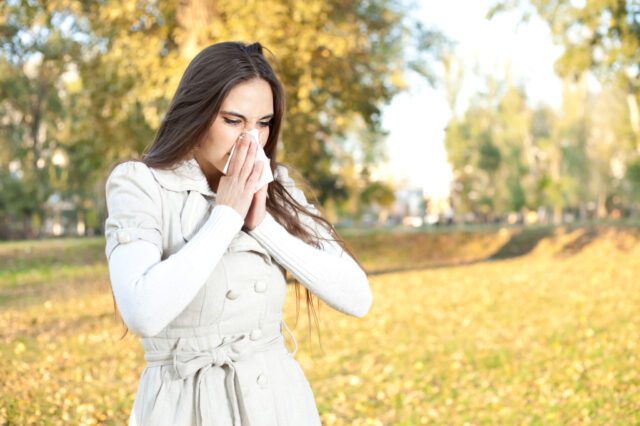For the majority of us, popping a couple aspirin is our go-to solution for a headache, body ache or fever. In fact, statistics reveal that the world’s population downs about 100 billion tablets every year. But for those of us with sensitivity to aspirin, this quick-fix is just a quick way to magnify your pain. Itchy skin and hives, stomach pain, diarrhea, nausea, hyperactivity, and difficulty breathing are just a few of the indicators of an “allergic” or pharmacological reaction; and all these symptoms can be attributed to one key ingredient: salicylates.
What are Salicylates?
Salicylates, derived from salicylic acid, are naturally-occurring preservatives and immune boosters found in plants. They protect the plants from insects, fungi and bacterial afflictions, and seem to have the similar benefits for humans, acting as an analgesic to relieve pain, an antipyretic to reduce fever and an anti-inflammatory to sooth irritation. But even natural forms of salicylate can have adverse effects when consumed.
Those experiencing such effects likely have salicylate sensitivity. While it’s not considered a true allergy, the consumption of salicylates could potentially trigger the same type of hypersensitivity that an allergy would. This is particularly true of asthmatics, whose immune systems are prone to acting up toward generally harmless substances. Even a small amount of salicylate could lead to an intense reaction of the aforementioned symptoms.
How Can I Be Sure It’s a Salicylate Sensitivity?
If you suspect that you have a sensitivity, it’s always recommended that you consult a physician. There is no proven test to diagnose it, but doctors can conduct what is called a “proactive challenge” to isolate the cause of the reaction. In a proactive challenge, the doctor administers increasing doses of aspirin in a controlled setting and assesses the body’s response. With allergic reactions, the body’s immunoglobulin antibodies will activate white blood cells. If this occurs, it indicates that you have an aversion to aspirin.
How Can I Avoid It?
Unfortunately, avoiding salicylates is not as easy as just avoiding aspirin. While they are predominantly found in oral medications, they also make an appearance in many cosmetics and foods.
There is an exhaustive list of products that commonly contain some variation of salicylate and, therefore, could spur a reaction. On this list are acne products, bubble baths, fragrances, hair sprays, lipsticks, muscle pain creams, face products, shampoos, toothpastes, lozenges, stomach and heartburn medications, gum and even some herbal remedies. Its pervasiveness makes it even more crucial that consumers check ingredients before purchasing or using any substance.
In regards to medication, it is best to avoid any non-steroidal anti-inflammatories (NSAIDs) like ibuprofen and naproxen, as they are chemically similar to salicylates. You might also avoid certain ingredients commonly used in conjunction with or as a derivative of it. These include artificial dyes and colors, benzoates, menthol peppermint, or anything with a prefix or suffix “salicyl.”
But while remaining cautious, doctors do not suggest eliminating salicylate from your diet and environment altogether. Attempting to eat a salicylate-free diet would be very restrictive and would not allow your body to become desensitized. A salicylate-reduced diet, on the other hand, could help to lessen symptoms. The Feingold Association, which deals largely with hyperactivity, developed such a diet regimen to avoid certain trigger foods. In the first weeks of the program, salicylate-rich foods are removed from the diet. These include most berries, apples, pineapples and grapes; bitter vegetables like endives and radishes, as well as cucumbers and zucchini; processed meats and gravies; most nuts, particularly those with the skin on; and many sweets and candies, primarily because of their artificial coloring. Once these foods are eliminated for a brief period, they are then gradually reintroduced to test for sensitivity. If the individual reacts to the reinstated food that will more or less confirm their sensitivity.
Another Concern: Aspirin Poisoning
Worse than salicylate sensitivity is salicylism, or aspirin poisoning. This can reasonably afflict anyone, but those with an “aspirin allergy” are likely to experience even more severe effects.
Salicylism occurs when someone takes an excessive dose of aspirin, which begins with acute toxicity at 150mg per kg of body mass and is considered severe at 300 to 500 mg/kg. A dose greater than 500 mg/kg could be lethal. If an individual consumes 100 mg/kg for at least two consecutive days, they could develop chronic toxicity, which has a mortality rate as high as 25%.
Symptoms of an overdose could include nausea and vomiting, abdominal pain, ringing in the ears, seizure or even a pulmonary edema, which could be deadly. If treated immediately, doctors can potentially cure the toxicity through a number of methods, including charcoal, intravenous dextrose, sodium bicarbonate and dialysis.
Having a salicylate sensitivity does not have to dictate one’s life. As society becomes more aware of the condition, there are increasingly more salicylate-free alternatives on the market, from medication to toiletries to food. But there is still a great necessity to read labels and know your ingredients. Ultimately, this is a lesson we could all take from those affected: to become the type of consumers who educate themselves on every product they consume. It is our responsibility to be cognizant and well-informed when it comes to our health. There will almost always be something hiding in our products and, often, it’s up to us to find it.
Insider’s Health Exclusive –>>: Click Here to Find out The ONE “Weird Trick” that reduces your terminal disease risk by OVER 70% (and NONE of us are doing it)









